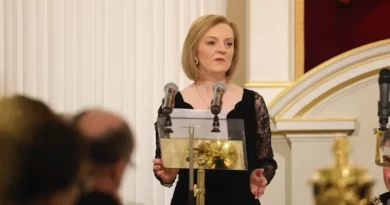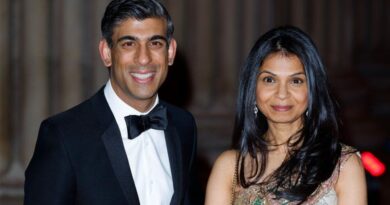Stick-Wielding Saudi Moral Police In Gloom As Social Restrictions Eased
Riyadh In deeply conservative Saudi Arabia the religious police once inspired terror, chasing men and women out of promenades to supplicate and berating anyone seen mingling with the contrary coitus But the stick- applying guardians of public morality have watched gloomily as in recent times their country eased some social restrictions– especially for women– and rumble plaintively at the changing times.
“Anything I should ban is now allowed, so I quit,”Faisal, a former officer, who asked to use a alias to cover his identity, told AFP Saudi Arabia, home to the two holiest Muslim spots, has long been associated with a rigid branch of Islam known as Wahhabism The notorious morality police– officially named the Commission for the Promotion of Virtue and the Prevention of Vice, but known simply as the mutawa– were preliminarily assigned with administering the observance of Islamic moral law.
That included overseeing any action considered immoral, from medicine trafficking to moonshine smuggling– alcohol remains illegal– down to covering social geste including the strict isolation of the relations But the force was sidelined in 2016, as the canvas-rich Arab area tried to shake off its austere andultra-sexist image Some restrictions have been eased on women’s rights, allowing them to drive, attend sports events and musicales alongside men, and gain passports without the blessing of a manly guardian Deprived of’its birthrights’ The mutawa has been” deprived of all its birthrights”and” no longer has a clear part”, said Faisal, 37, dressed in dark traditional blankets.
“Before, the main authority known in Saudi Arabia was the Commission for the Promotion of Virtue. Moment, the most important bone is the General Entertainment Authority,”he added sarcastically He was pertaining to the government agency that organises events, including a performance last time by Canadian pop star Justin Bieber at the Saudi Formula One Grand Prix auto race and a four- day electronic music jubilee For decades, the mutawa’s agents cracked down on women who didn’t duly wear the abaya, an boxing loose black dress worn over the clothes The rules now on the abaya have been relaxed, mixing between men and women has come more common, and businesses are no longer forced to close during the five diurnal prayer times.
Turki, anotherex-mutawa agent who also asked for his name to be changed, said the institution he worked for a decade effectively” no longer exists” Those officers who remain do so” only for the payment”, he said We no longer have the right to intermediate, nor to change behaviours that were considered unhappy”, he added Hit us with sticks’ Since getting Saudi Arabia’s de facto leader in 2017, Crown Prince Mohammed bin Salman has sought to place himself as a champion of” moderate”Islam, indeed as his transnational character took a hit from the 2018 murder of intelligencer Jamal Khashoggi inside the Saudi consulate in Istanbul.
For pen Saud al-Katib, the reduction of the mutawa’s power constitutes a” significant and radical change” Numerous ordinary Saudis similar as Lama, a woman puffing a cigarette in the centre of the capital Riyadh, say they aren’t slipping gashes for the agents We’d not have imagined smoking in the road a many times agone,” said Lama, her flowing abaya mask open to show her clothes beneath.
“They would have hit us with their sticks,”she said laughing Rather than patrolling the thoroughfares, mutawa agents now spend much of their time behind their divisions, developing mindfulness juggernauts on good morals or health measures The mutawa is now” insulated”, said a Saudi functionary who requested obscurity, noting”a significant drop in the number of its workers” Mutuwa leader Abdel Rahman al-Sanad wants to reform the force– in a country where further than half of the population is under 35 times old– and has indeed told a original TV station the commission would retain women.
Sanad has admitted some agents had in the once married” abuses”, and carried out work without any” experience or qualification” Ahmad bin Kassem al-Ghamdi, a former elderly mutawa functionary ousted in 2015 because of his progressive views, said the commission’s”biggest miscalculations were following individual miscalculations”by some officers This, he told AFP,”caused an adverse and negative” impact to its image But the authorities can not go to get relieve of it fully, according to Stephane Lacroix, an expert on the region and a professor at France’s Lores Po university The mutawa are linked”to a certain Saudi identity to which numerous conservative Saudis cleave,”Lacroix said But, while some effects have changed, others have not Although the religious police have seen their powers wane, alongside the reforms have come a crackdown on dissentients– including intellectualists and women’s rights activists.



